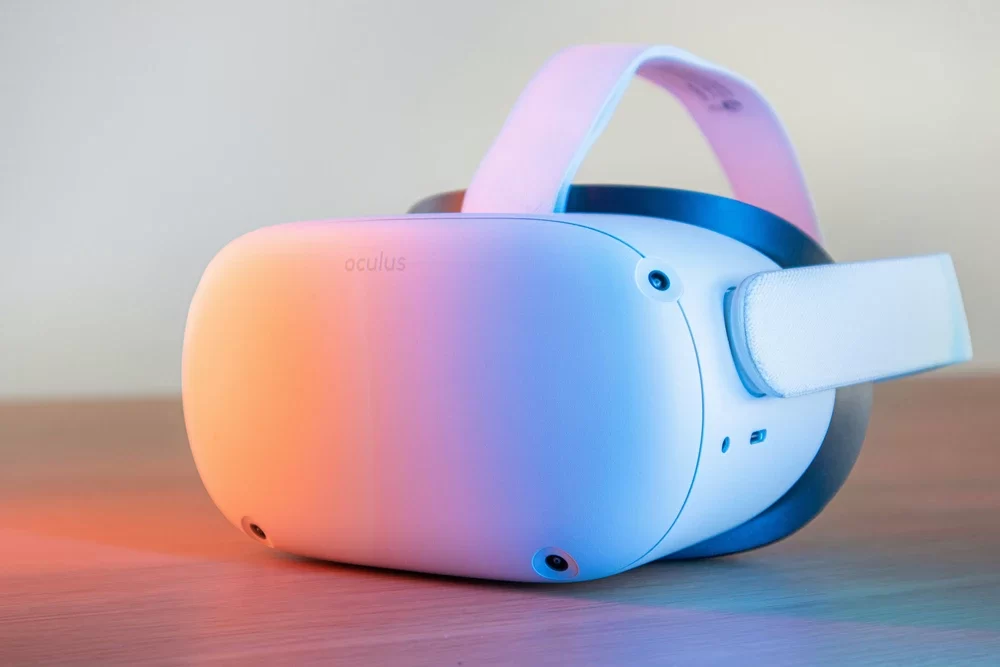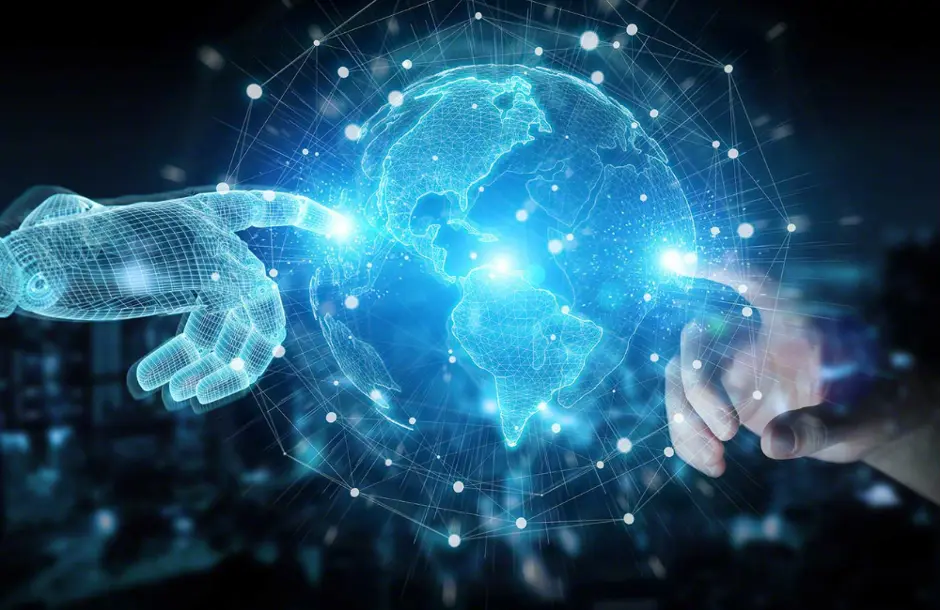Facebook’s 2021 name change thrust the metaverse into the spotlight. Founder Mark Zuckerberg announced the change to the world in a metaverse-heavy keynote in what was a lot of people’s first exposure to the technology. The presentation talked a lot about the social implications of a virtual world, and covered areas such as a more immersive gaming experience. But like all new tech, beyond the initial use cases lie ways in which the lives of the world’s most vulnerable can be enhanced.
What is the metaverse?
The metaverse is the term used to describe a virtual world. Although metaverses can be accessed through a PC, phone or similar devices, a virtual reality headset like the Apple Vision Pro offers the most immersive experience and is opening up new possibilities when it comes to connecting, working, playing, learning and shopping.
What is VR technology?
Virtual reality (VR) technology is the term used to describe a 3D digital environment that users can interact with and explore. Environments can range from mirroring real-world scenarios to completely fictional environments that we see in gaming.
Today, the latest way to access the metaverse is through a virtual reality headset. Apple’s Vision Pro rivals Meta’s Quest in the battle of the virtual reality headset market.
Although still in its infancy, VR apps and use cases are starting to pop up. The recently launched Vision Pro headset from Apple tried to incorporate many existing day-to-day use cases such as allowing users to use FaceTime, look at photos and browse Safari when wearing the device.
Although this is a smart way to onboard new users, the real excitement of VR technology comes when looking at its full potential. More specifically, how virtual worlds accessed through the use of such devices can change the lives of people all over the world.
Metaverse use cases for good
Health
Currently, a large proportion of health professionals’ training is done in a classroom. Although technological advancements such as silicone-based simulations have gone a long way to bridging the gap between the classroom and the operating table, there’s nothing like the real thing.
Virtual reality training offers the potential for training surgeons to be able to access life-like simulations via a virtual setting in the metaverse. Excitingly, virtual reality has already started to be used in health settings.
Osso VR is a leading surgical training platform that allows aspiring surgeons to fine-tune their skills in a virtual world before being provided with feedback and detailed analytics. The company harnesses the innovativeness of Apple’s Vision Pro headset and recently launched its Osso Health app on Apple’s App Store.
The future impact of companies like Osso is that a surgeon performing a real-life tummy tuck in Manchester for the first time has practised 100 times previously from the comfort of their own home.
Education
One of the best use cases for the metaverse and virtual reality technology is education, and more specifically, how it can be used to offer increased access to education all over the world. Statistics show that a staggering 244 million children are currently out of school.
Sub-Saharan Africa is the home of almost half of these children with 98 million children in the region not attending school. Even more worrying, this statistic is still rising.
Unsurprisingly, these children would love to not be part of that depressing statistic. But the lack of access, often a result of poverty or conflict, leaves them with no choice. However, virtual education could be the vehicle for change the world needs to put an end to this pressing issue.
Virtual learning or schooling in the metaverse takes away the need to attend a physical school or building, a major barrier in parts of third-world countries where schools are often overcrowded or not even existent.
For now, this is a dream rather than a reality, and benefits will probably reach teachers in third-world countries first. Teachers could potentially receive better access to training which can then be passed on to pupils through a higher standard of education in developing countries.
Social
Currently, we live in a world constricted by geographical barriers. The metaverse world, however, is not. Through virtual reality, putting on a headset device can instantly take you anywhere in the world.
The first use cases that spring to most minds are novelty-based: space travel, time travel or hopping around the seven wonders of the world. The social impact though, could be far greater than just novelty to some people.
Consider those that are in long-distance relationships, or elderly family members who can’t travel to spend time with relatives. In instances like these, communication is often limited to phone calls and video calls. Now, a VR headset offers the ability to virtually transport long-distance sufferers to the same place, allowing for a much more immersive interaction despite not being in the same location.

